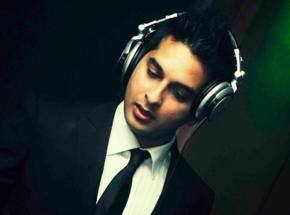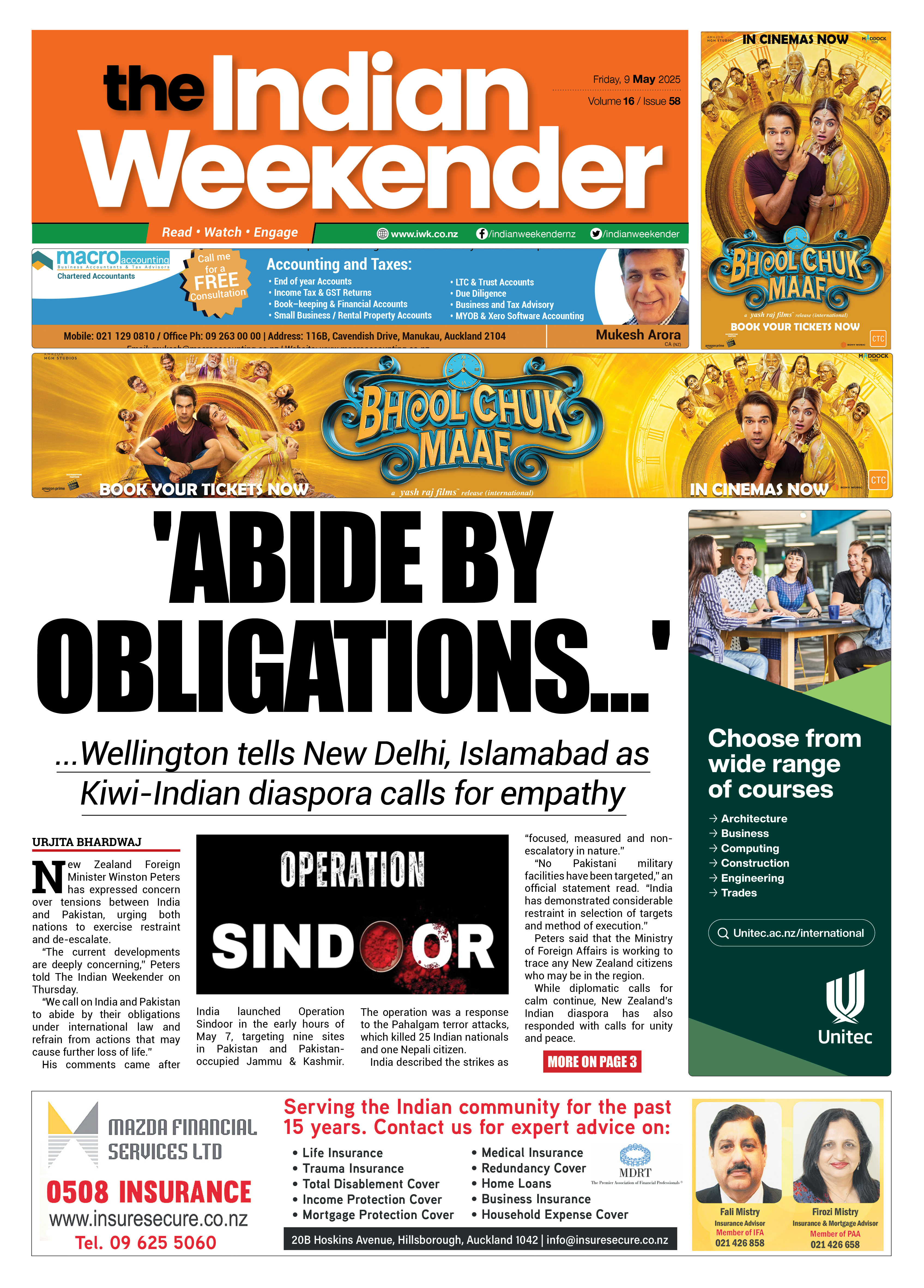DJ with a twist

Areeb, how long have you been in New Zealand for?
For about 20 years now, I’ve done my schooling and university here.
What did you study at University?
I did three years of software engineering before I decided it was the most boring thing ever and then I changed my degree and started from scratch and did Network and Systems and now I work for Datacom and I do that Monday to Friday, though I get tied up with DJing and this on a regular basis. Because here in the Desi scene, DJing's not just about going there, playing and getting out, you have to take care of your marketing and everything else that comes with it.
So how did DJing come about?
I was always interested in music, but DJing just happened. There were a lot of night clubs here but there was no proper Bollywood night club. So we, friends, started having our own house parties and that’s when the whole DJing thing kicked in. I was doing well and so got myself trained in that.
Our choice of music was slightly different than the typical Bollywood night clubs. The Bollywood night clubs here were serving the older generation. There as nothing for the younger Indian generation. So we thought that we should start something for the young Indians.
We started off in St Lukes, but with much skepticism as we weren’t sure how people would take to a night club in a shopping mall. But we got a great response. We quickly went viral and got a great response. After that we got a lot of publicity and got support from students. We required a quality Desi night club, the market was open and we took hold of the opportunity.
How would you say your style of music was different from the typical music being played at the Bollywood night clubs?
It was massively different, singers like Udit Narayan and Kumar Sanu were being played in night clubs and that’s where the youth didn’t connect. Times had changed rapidly in India, especially after the open market in ’98. And this is something that needed to be picked up by the DJs here, but it didn’t happen because they came from an older generation. This lead to declining numbers of youth in Bollywood night clubs and along with that there was a taboo attached to the Bollywood night club scene.
People thought a Desi night club meant trouble and our biggest task was to change that. It can be classy as a mainstream night club. And I had an added advantage as I had worked with a lot of youth and knew the music scene. So our music was more Electro / House based. So we brought it to the level where both the white and the Desi crowd could connect. So that’s where we were a little different in comparison to the rest.
Was this kind of music an added advantage in terms of the kind of places you played at?
No, cause we started very low. But suddenly we gained a lot of popularity. People started following us. We learnt how to market ourselves. And then we got promoters for these Bollywood shows coming up to us, asking to promote their shows at our night clubs.
When you think of typical Desi DJs, they’re just DJs, for most of them it’s a full time thing. But for us (me and my team), we were professionals.
We’re project engineers and we knew how to market things, how to manage a project. So our approach was more qualified in terms of the research we conducted as to why Bollywood night clubs didn’t work. There were Indians, who were going out, but they just didn’t go to a Bollywood night club and we took a professional marketing approach to the situation and looked to solve it that way.
We researched on how DJs in India were playing and we found out that they were way ahead of us. They were competing at a world level. So we used that and mixed it with the local talent here and served it that way.
So was this the idea behind R – Lounge then, having a more youth focused place?
R – Lounge came much later. Before that we ran for 3 successful years in Moa’s Nest. We did our first show with Atif Aslam and then Imran Khan. Both shows were successful.
So after this, Ravi from the Raviz group approached me, especially after seeing me at the Imran Khan concert. He told me about the idea behind R – Lounge – a restaurant during the day and a night club at night. At that time I had reached a certain level in the Bollywood DJing scene and was looking to play at mainstream night clubs in Auckland and was lucky to have played at places like Lenin, Carpark, Code and Bunglow 8. I was pushing boundaries for myself and was looking to play more English music, but went back to Bollywood with R – Lounge.
So we came up with the idea of a classy Bollywood night club for the youth and it worked. Our idea is to make R – Lounge into a place which will see international artists coming in and playing from all over the world, but Bollywood fusion DJs. Cause I am a firm believer in the fact that a person who looses their roots is a person lost. So we want to stick to our roots. Culture is important and is my identity.
So after all this success, where do you see yourself in the future, with DJing?
DJing started off as a hobby and I don’t know when it turned in to something more serious. Even today when people say “Oh you’re a DJ” and it takes me a second to register. I live my project engineer life separately, full time and this is still a hobby.
I have never charged for DJing. Whatever money I get from DJing I give it to charity. Because I earn my living as a project engineer, that pays my bills. My whole idea was to start a charity organization and that’s what I do with the money I get from DJing. I don’t and never have put a price on myself.
I would like to produce more remixes in the future though and the ones I have done have been popular, but at the moment I don’t have enough time. I have work, R – Lounge, I give time to my family and then whatever little time I have left, I sleep, it’s my other hobby.
Do you have any message for the young people who want to pursue their hobby like you did?
You know, my parents were never in favour of DJing. I come from a family where Indian culture and language were a primary focus. We always spoke Hindi at home. And then academics were always important. So I was like a black sheep in the family. Initially it was very hard to be a DJ. But then everyone saw that if your successfully pursuing your profession than there is no harm in pursuing your hobby.
So I would like to tell all the young people that get your qualifications first, become successful in your profession and then pursue your hobby, because having a hobby is an excellent thing as long as you are sorted professionally.
And one other thing is, be proud that you’re Indian, because that’s where you come from. Always stick to your roots no matter how long you’ve been in New Zealand.



